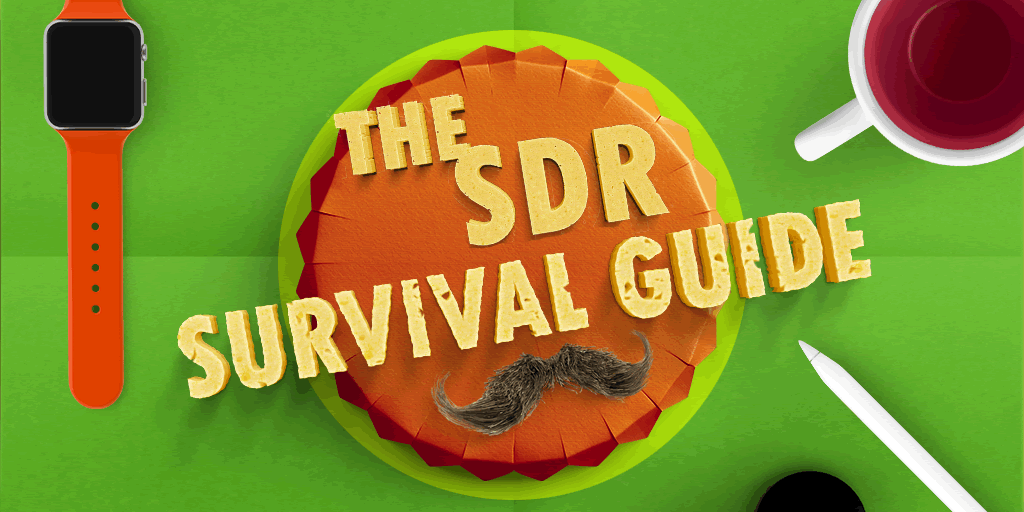
How to become a great salesperson | 11 sales skills to master

The approach to sales has evolved from the days of cold calls and product pitching to a modern, more comprehensive, and personalized approach to selling.
Today, salespeople are very much aware of their potential client’s needs and have taken on the role of thought leaders and influencers to earn the most important buy-in in the sales process: trust.
To succeed in sales, persuasion and strategizing skills are no longer enough. Salespeople need to learn how to build long-lasting relationships.
Let’s take a look at the steps that can help you become a great salesperson.
1. Understand your buyers
To put it simply, you need to know your Ideal Customer Profile (ICP) and understand customer pain points. Personas identified in an ICP have diverse traits, pain points, and needs.
To define a sales strategy, you must first know the ICP and what characteristics embody your customer base. Successful salespeople are very clear about who makes up their target market and how their products/services can benefit potential customers.
You need to know everything about your buyer, especially if you are selling to a sophisticated buyer who has much more business experience than you do. For example, if you’re selling to Chief Technology Officers (CTOs), try to reach out to a few CTOs for an informal (and not salesy) chat.
Get to know what they are thinking about and what language they use. What does their every day look like? What do they do? What challenges do they have? How are they dealing with these challenges? What KPIs do they use?
The deeper you can immerse yourself into your buyer’s world, the easier it’ll be for you to close deals.
2. Become part of the community
Once you have had those initial interactions, find out where your buyers hang out.
What groups do they use on LinkedIn? What associations are they in? What publications are they reading? Are there books that they’re all talking about lately?
Find out what their community is talking about.
This will help you have more meaningful conversations with your potential buyers and will give you credibility when you talk to them. They’ll see that you understand what’s happening in the community and have industry-wide knowledge instead of being solely focused on your offering.
Only once you are immersed in the buyer’s persona can you talk to them about what you do and how you can help them build a better business.
3. Get to know your product
Knowing your buyer personas and their community is important. But so is knowing all the ins and outs of your product or service!
You can’t sell something until you know what it is and believe in what it does. You need to be confident in your explanation of the purpose and benefit of the product. You’ll never be able to get someone else to buy something if you aren’t convinced yourself.
Successful salespeople are not only aware of their product features but they also have an impeccable understanding of how their product fulfills the needs of their target customer.
They apply this knowledge by presenting the product to prospects in a way that emphasizes the solution to the customer’s major problems.
4. Implement a consistent and scalable process
Great salespeople know that they must work efficiently and be as persistent as possible if they want to succeed in sales. As a result, they should do everything within their power to execute a consistent and scalable sales outreach process.
It is smart to engage prospects through channels they are comfortable with whether these are phone calls, social media outreach, or email campaigns. Whatever channel you use for prospecting and follow-ups, make sure that it works for your audience.
This ensures a better chance of reaching a higher conversion rate by sending personalized and context-driven messages.
5. Record your sales calls
Record as many sales calls as possible so you can listen to yourself. Listen to your tone. Do you sound confident? Are you nervous? Do you use filler words or too much slang?
Even if you’re not comfortable with listening to your voice, this can be a very insightful exercise. You need to listen to the recordings to make sure that you’re not only listening but that you’re conveying the message in the right way. It’s difficult to evaluate your performance during the sales call so listening to recordings can help you take a step back and reflect.
Other times you might notice that the prospect has already told you what you wanted to hear but at that moment you were too busy thinking about what to ask next so you missed an important detail.
Whether you’re new to sales or have been selling for 30 years, sometimes you need to listen to yourself in order to keep learning and improving.
6. Use your personality
Your personality is your unique asset. Nobody can take it away from you—and nobody can be you!
So use it to your advantage. Are you funny? Are you good with technical details? Or do you notice and remember small things about people? Use your unique traits and skills to establish relationships.
It’s easier to start a conversation with anyone if you make it personal in even the smallest way. Buyers know you’re calling them to sell, but in the short term, just try to establish a relationship.
Sometimes moving away from automation pays off. After all, whether you’re in B2C or B2B sales, there’s another human on the other side of the deal.
7. Get a mentor
There are many free mentoring programs for salespeople. But even if you can’t find a good free program, it might be worth considering paying for one.
A mentor is a more experienced salesperson who’ll share their experience with you. If there’s a chance to learn from someone else’s mistakes, why not do this?
Besides, mentoring doesn’t just help you but your mentor too. It’s a two-way street: you’re learning from your mentor but your mentor is learning from you too.
Sales are a very dynamic field—things are constantly changing and great salespeople are thinking of new and innovative ways to do their jobs. So why not spread the knowledge further?
8. Become a trusted advisor
A great salesperson is a trusted advisor who can provide answers to critical business questions and help their prospects. In modern sales, it’s time to stop focusing on our products so much and start thinking about the customers.
To become a trusted advisor, you need to get up to speed on verticals, titles, industry trends, and conversation starters. Think about the marketplace. Think about what resonates with a potential buyer or, just as importantly, someone who’s not choosing to invest in your offering now.
Following the sales process is important, but you need to personalize it for your prospects.
Instead of only making the number of touches required on average, look for compelling events in your market that affect your prospects. Has there been a leadership change, a stock price rise, or an acquisition that could make this the right time to have a conversation?
9. Ask good questions
If a potential customer isn’t thinking about buying, great salespeople need to ask the right questions to demonstrate why the customer should consider their solution.
For example, if you see that they are reluctant to buy from you, try to understand their concerns to find a way to handle objections.
Are they not sure that your tech solution will save them money? Ask them about how much time they are spending on manually entering data or [insert anything else that your solution does better than what they are currently using]?
Instead of trying to sell directly, great salespeople can find indirect ways that work too. You can find out what the prospect needs help with by asking smart, open-ended questions that encourage them to think about their situation and help them realize the value of your offering.
Active listening is such an underrated skill!
10. Always personalize your messages
Personalizing messages is a smart move in sales, and great salespeople excel in this area. Today, a lot of information about prospects is available online.
Since sales reps are the first human point of contact between the prospect and the company, you need to be able to effectively connect with your ideal customer on a personal level.
Great salespeople are socially active and understand the importance of opening conversations with a personal touch.
11. Master the art of follow-ups
Following up with new leads in a timely manner is important to make a sale. It’s key to capture your prospect in their moment of interest (or as close to it as possible). This is when your brand and message is on top of their mind.
Even if they don’t respond the first time, be consistent and persistent in following up and engaging with your prospects while they are likely to be thinking about the issues that your product or service addresses. Put on your concierge hat and engage them as a courtesy to make sure they were able to successfully download the materials provided.
Before you let them go, ask them what caused them to click on the material and wait for their response. Although, remember to be careful of pushing too hard if the timing just isn’t right.









